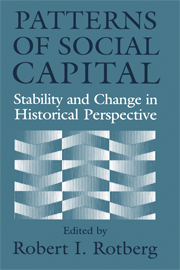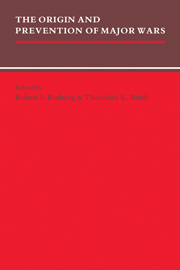2 results in Studies in Interdisciplinary History

Patterns of Social Capital
- Stability and Change in Historical Perspective
-
- Published online:
- 12 April 2010
- Print publication:
- 27 November 2000

The Origin and Prevention of Major Wars
-
- Published online:
- 02 December 2009
- Print publication:
- 24 February 1989

